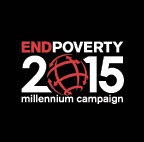Friday, January 17, 2014
Conflict. Is it Always a Bad Thing
Conflict is inevitable amongst any organization, whether it
be secular or non-profit. Any time diverse personalities sit across the table
from one another there will always be a difference of opinion regarding ideas,
solutions and situations. Of course some people bring their own agendas to the
table, and some simply have strong feelings in regards to a particular subject.
The fact is that conflict is often a part of the decision making process and
must not be avoided. But does that make conflict bad? Absolutely not!
It is wonderful when we all agree on a particular agenda
item. It is fine, and even encouraged for people to express their difference of
opinion and ideas. Healthy conflict creates the tension that any organization
needs to move forward. The problems surrounding conflict occurs when we are not
working for the betterment of the institution, and instead wish to push our own
needs through at the expense of the process.
While there are many ways people react to conflict such as
avoidance, accommodation, compromise, competing and collaboration, the bottom
line is that we must all work together to effectively manage the task or make a
sound decision.
Avoiding the problem is not always bad. Perhaps we need to
put the topic off for more discernment or it may just not be worth the time and
energy to discuss. But if avoidance is used to separate ones self from the
issue at hand and not deal with the problem out of fear, then that is
unhealthy.
Accommodation places us in a category in which some one
simply gives up their stake in the polemic at their own expense. They give
themselves over to whatever decision is made. This is not a healthy way to move
an argument forward. We end up selling ourselves short by withdrawing our needs
completely.
Compromise is nothing more than annoying attempts to allow
everyone to get what he or she wants. No one feels fulfilled and frustration in
sues within the group.
Competing is the process in which a decision must be made.
Thus the authority figure overrides the group to pass the issue at hand. This
is sometime important to do, especially if the leader knows more about the
subject, and a decision must be made quickly. It is not always healthy to use
this model, but on occasion necessary.
Collaboration is where we come together and discuss the
topic and are able to come to some form of healthy agreement. Of course this process
is time consuming and if an issue needs immediate attention this model does not
work well.
In conclusion, conflict is inevitable. However, we have a
choice in the matter. We can either exercise conflict models in a healthy
manner, or one that is unhealthy and destructive to the group. Conflict often
creates the tension that provides the momentum we need to move forward as a
group in order to make sound and good decisions.
Much of this model and information is credited to
Robert Galliger and Michelle Hayne’s workshop on Conflict Management.
Subscribe to:
Post Comments (Atom)
Trinity Wall Street Conference Center Chapel

Our prayers rise like incense into heaven
Church of the Good Shepherd, Augusta, Ga.

"...And the sun shall not strike you by day, nor the moon by night."

























No comments:
Post a Comment